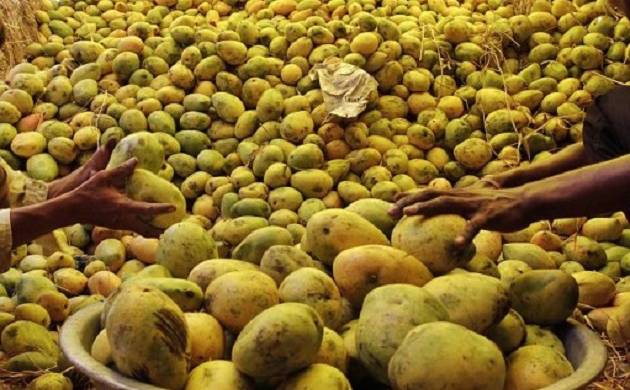'Aam' to be 'khaas' for common man this year
In January, the crop saw profuse flowering, which was unusually early. The flowers began to shed in February and so did the hopes of mango growers. Some mango growers also blame the apathetic attitude of the state government towards mango cultivation.

Mango production in Uttar Pradesh is around 70 per cent less than what it was last year when the output was four million tonnes.
Mango Growers Association of India (MGAI) president Insram Ali said that, "A marginal growth in the mango output was expected earlier. The plucking of ‘Dussehri' started late this season due to a poor crop and adverse weather conditions, including hailstorms, in the orchards of Malihabad, which is a part of Lucknow suburb.
"In this season, we expect a box (5 kg) of Dussehri to sell at nearly Rs 300 in the initial weeks, compared to about Rs 200 per box last year," he said.
Insram Ali said that the production of mango is progressively becoming a losing proposition for farmers due to a lack of government support. The central Horticulture Department has convened a meeting in which mango growers will demand insurance cover and specialised testing labs for the crop.
He further said that receding water tables were spelling doom for mango cultivation
According to him, Uttar Pradesh produces around 45 lakh metric tons of mangoes every year, Malihabad alone contributes around 7 lakh metric tons.
"We were expecting a good crop this year but poor flowering, diseases and erratic water supply has played a spoilsport here in Malihabad. We are hoping that only 25 per cent of the total produce expected will be market-ready," said Insram Ali, who owns 70 acres of mango orchards in Malihabad.
Also, the crop is also likely to be delayed for around 20 days and will hit market not before June 20. Two years ago, the state's prime mango belts, including Malihabad, had witnessed the record production of Dussehri mangoes.
ALSO READ | Why is it safe to eat MANGOES during summer; Read the detailed health benefits of Mango
In January, the crop saw profuse flowering, which was unusually early. The flowers began to shed in February and so did the hopes of mango growers.
Some mango growers also blame the apathetic attitude of the state government towards mango cultivation.
"We don't have a status of a farmer. Our crops are not insured and we do not get any subsidy from the government on pesticides," said Kamran, a mango grower.
Insram Ali rues that Dussehri mangoes have not been able to make much of a dent in global markets. Except for a small market in the Middle East, Dussehri is yet to be exported overseas and has not reached the large markets of the US or Europe.
The Alphonso from the western part of the country has not only become the country's favourite fruit but is also exported to the UK, US and EU nations.
In Uttar Pradesh, mango is produced in an area of 2.5 lakh hectares. Lucknow, Pratapgarh, Allahabad, Bulandshahr, Saharanpur, Faizabad, Varanasi, Moradabad, Barabanki, Meerut, Unnao, Sitapur, Hardoi, Gorakhpur, Basti, Amroha and Mathura are mango producing belts where varieties like ‘Chausa', Dussheri' ‘Fazli' , ‘Langda', ‘Mallika' amd Amrapali' are produced.